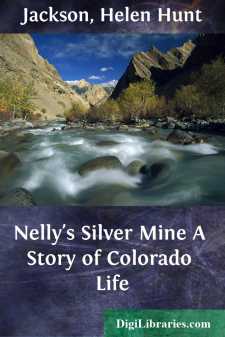Categories
- Antiques & Collectibles 13
- Architecture 36
- Art 48
- Bibles 22
- Biography & Autobiography 813
- Body, Mind & Spirit 142
- Business & Economics 28
- Children's Books 16
- Children's Fiction 13
- Computers 4
- Cooking 94
- Crafts & Hobbies 4
- Drama 346
- Education 46
- Family & Relationships 57
- Fiction 11829
- Games 19
- Gardening 17
- Health & Fitness 34
- History 1377
- House & Home 1
- Humor 147
- Juvenile Fiction 1873
- Juvenile Nonfiction 202
- Language Arts & Disciplines 88
- Law 16
- Literary Collections 686
- Literary Criticism 179
- Mathematics 13
- Medical 41
- Music 40
- Nature 179
- Non-Classifiable 1768
- Performing Arts 7
- Periodicals 1453
- Philosophy 64
- Photography 2
- Poetry 896
- Political Science 203
- Psychology 42
- Reference 154
- Religion 513
- Science 126
- Self-Help 84
- Social Science 81
- Sports & Recreation 34
- Study Aids 3
- Technology & Engineering 59
- Transportation 23
- Travel 463
- True Crime 29
The Hunter Cats of Connorloa
Description:
Excerpt
Once on a time, there lived in California a gentleman whose name was Connor,—Mr. George Connor. He was an orphan, and had no brothers and only one sister. This sister was married to an Italian gentleman, one of the chamberlains to the King of Italy. She might almost as well have been dead, so far as her brother George's seeing her was concerned; for he, poor gentleman, was much too ill to cross the ocean to visit her; and her husband could not be spared from his duties as chamberlain to the King, to come with her to America, and she would not leave him and come alone. So at the time my story begins, it had been many years since the brother and sister had met, and Mr. Connor had quite made up his mind that he should never see her again in this world. He had had a sorry time of it for a good many years. He had wandered all over the world, trying to find a climate which would make him well. He had lived in Egypt, in Ceylon, in Italy, in Japan, in the Sandwich Islands, in the West India Islands. Every place that had ever been heard of as being good for sick people, he had tried; for he had plenty of money, and there was nothing to prevent his journeying wherever he liked. He had a faithful black servant Jim, who went with him everywhere, and took the best of care of him; but neither the money, nor the good nursing, nor the sea air, nor the mountain air, nor the north, south, east or west air, did him any good. He only tired himself out for nothing, roaming from place to place; and was all the time lonely, and sad too, not having any home. So at last he made up his mind that he would roam no longer; that he would settle down, build himself a house, and if he could not be well and strong and do all the things he liked to, he would at least have a home, and have his books about him, and have a good bed to sleep in, and good food to eat, and be comfortable in all those ways in which no human being ever can be comfortable outside of his own house.
He happened to be in California when he took this resolution. He had been there for a winter; and on the whole had felt better there than he had felt anywhere else. The California sunshine did him more good than medicine: it is wonderful how the sun shines there! Then it was never either very hot or very cold in the part of California where he was; and that was a great advantage. He was in the southern part of the State, only thirty miles from the sea-shore, in San Gabriel. You can find this name "San Gabriel" on your atlas, if you look very carefully. It is in small print, and on the Atlas it is not more than the width of a pin from the water's edge; but it really is thirty miles,—a good day's ride, and a beautiful day's ride too, from the sea. San Gabriel is a little village, only a dozen or two houses in it, and an old, half-ruined church,—a Catholic church, that was built there a hundred years ago, when the country was first settled by the Spaniards. They named all the places they settled, after saints; and the first thing they did in every place was to build a church, and get the Indians to come and be baptized, and learn to pray. They did not call their settlements towns at first, only Missions; and they had at one time twenty-one of these Missions on the California coast, all the way up from San Diego to Monterey; and there were more than thirty thousand Indians in them, all being taught to pray and to work, and some of them to read and write. They were very good men, those first Spanish missionaries in California. There are still alive some Indians who recollect these times. They are very old, over a hundred years old; but they remember well about these things.
Most of the principal California towns of which you have read in your geographies were begun in this way. San Diego, Santa Barbara, San Luis Obispo, San Rafael, San Francisco, Monterey, Los Angeles,—all of these were first settled by the missionaries, and by the soldiers and officers of the army who came to protect the missionaries against the savages. Los Angeles was named by them after the Virgin Mary. The Spanish name was very long, "Nuestra Señora Reina de Los Angeles,"—that means, "Our Lady the Queen of the Angels." Of course this was quite too long to use every day; so it soon got cut down to simply "Los Angeles," or "The Angels,"—a name which often amuses travellers in Los Angeles to-day, because the people who live there are not a bit more like angels than other people; and that, as we all know, is very unlike indeed. Near Los Angeles is San Gabriel, only about fifteen miles away. In the olden time, fifteen miles was not thought any distance at all; people were neighbors who lived only fifteen miles apart.
There are a great many interesting stories about the first settlement of San Gabriel, and the habits and customs of the Indians there. They were a very polite people to each other, and used to train their children in some respects very carefully. If a child were sent to bring water to an older person, and he tasted it on the way, he was made to throw the water out and go and bring fresh water; when two grown-up persons were talking together, if a child ran between them he was told that he had done an uncivil thing, and would be punished if he did it again....











